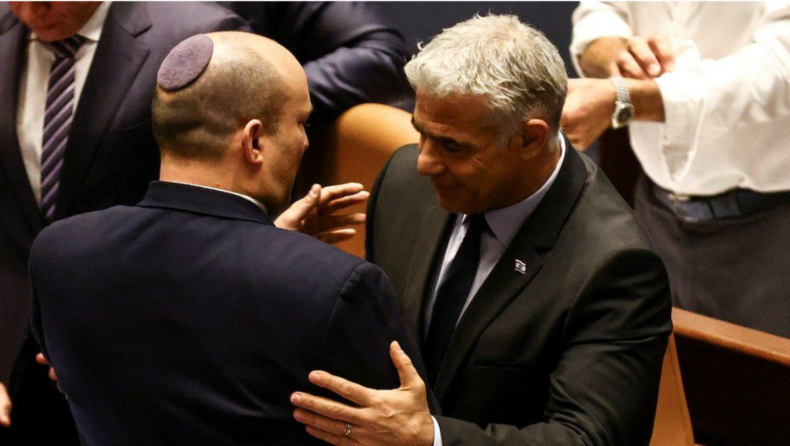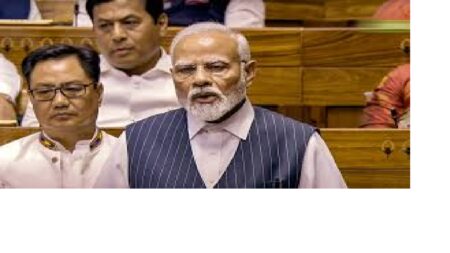Israel’s Knesset dissolved itself making way for the new interim Prime Minister Yair Lapid ahead of the elections on November 1.
Highlights:
- Israel’s parliament dissolves, and Yari Lapid becomes the new Prime minister.
- The country reels towards its fifth election since 2019.
- Benjamin Netanyahu targets a comeback.
Yair Lapid took over as the new Prime Minister of Israel from Naftali Bennett after just one year. Mr. Lapid will be the interim prime minister to lead the country ahead of elections on November 1. The upcoming elections will be Israel’s fifth election in less than four years amidst the political turmoil. The Lapid-Bennet coalition collapsed last week paving the way to another election and an interim leader. Yair Lapid took over as the 14th Israeli Prime Minister on 1 July 2022. He will face former PM Benjamin Netanyahu in the upcoming elections.
Who is Yair Lapid?
The new Prime Minister of Israel is a former journalist and a political chat-show host. However, in April, he quit journalism and entered politics by registering his party Yetish Atid. The centrist party Yesh Atid is the second-largest party in Israel’s Knesset and won 19 seats in the legislative assembly election in 2013. In 2021 and 2022, Lapid served as an alternate Prime Minister and Minister of foreign affairs.
Lapid served as Minister of Finance under Benjamin Netanyahu’s administration from 2012-2013. However, due to the polls that claimed his disappointing performance, Netanyahu fired Lapid in 2014. Further, Lapid was named one of the most influential Jews in the world by the Jerusalem Post in 2013. He was also named as the 100 most influential person in the world by Time Magazine.
In 2020, Lapid became the Leader of the opposition and began discussions with other parties to form a coalition government. A rotating government with Naftali Bennet and Yair Lapid came to power on 13 June 2021 to replace Benjamin Netanyahu. After a year of the coalition, Bennet dissolved the Knesset and stepped down as the Prime Minister. Lapid took over as an interim prime minister until the next election.
A cycle of elections:
Israel is witnessing a cycle of elections since April 2019. A constant failure by parties to form a coalition has reeled the country into its fifth elections in less than four years. The electoral process in Israel votes for parties instead of candidates. The elections are held once every four years. However, the Knesset decides to trigger early elections if the majority decides to dissolve it.
In 2015, Netanyahu won the elections for the fourth time and formed a ruling coalition. The coalition lasted for four years when Netanyahu was forced to dissolve the parliament following the resignation of Defense Minister Avigdor Lieberman triggering an election in April 2019. However, Netanyahu failed to secure a majority to form the government resulting in another election in September 2019. His opponent Benny Gantz also failed to secure enough seats giving rise to a political deadlock. In March 2020, a third election took place to break the dreadlock but failed. In April 2020, Netanyahu was able to form an “emergency” government with his rival Gantz. However, the coalition failed to result in the fourth election.
Netanyahu lost his power in June 2021, after 12 years as the caretaker prime minister. The Lapid- Bennett coalition took over the Knesset with Naftali Bennett’s swearing-in as the Prime minister. Due to the Knesset dissolution, Lapid took over as the new Prime Minister of Israel in July 2022. Mr. Netanyahu stated the collapse of the coalition was great news to the Israelis. The former prime minister targets a comeback in the upcoming elections.
Israel faces conflict with the Palestinians, soaring living costs, and a nuclear deal with Iran while the leaders fight for power, The political turmoil awaits to unfold in yet another election and the citizens face alarming times ahead.













